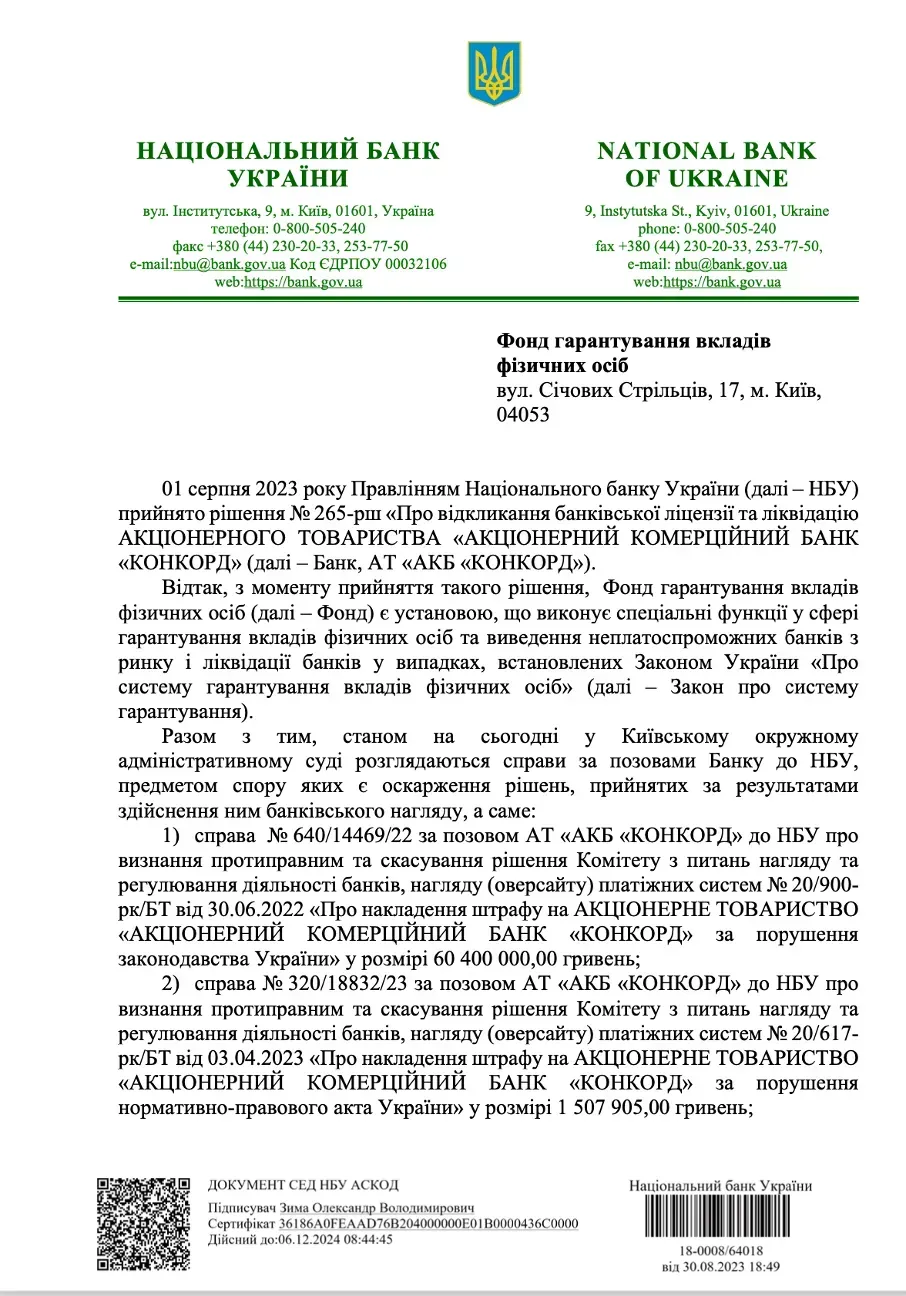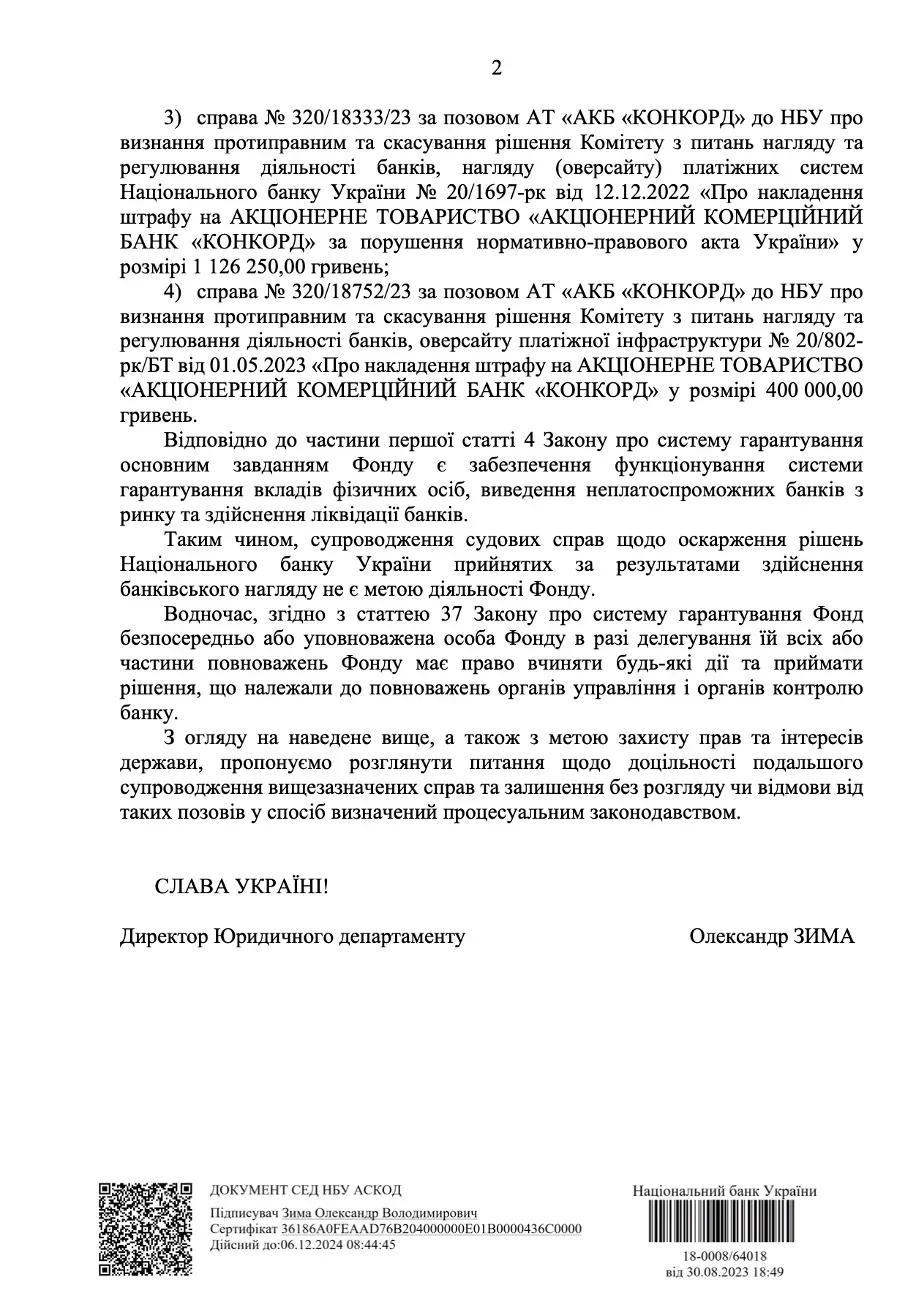Unwavering loyalty: why does the NBU governor not respond to violations by his subordinates?
Kyiv • UNN
Unwavering loyalty: why does the NBU governor not respond to violations by his subordinates?

Andriy Pyshnyi has been heading the National Bank of Ukraine for more than two years. During this time, he has had to face difficult challenges related to Russia's full-scale invasion of Ukraine. While the regulator has managed to cope with the challenges in the financial sector, the NBU's personnel policy leaves much to be desired, UNN writes.
Despite the war unleashed by Russia, the hryvnia has not gone into space, and Ukraine's financial sector is stable. According to the regulator, Ukraine currently has one of the largest foreign exchange reserves, and international partners continue to support our country, although they occasionally express their concerns.
However, the internal workings of the government agency have recently attracted more and more attention, and questions have been raised about the professionalism and high moral character of some NBU officials.
One for one
For example, it has become known that the State Bureau of Investigation has opened a criminal investigation against the NBU's chief lawyer Oleksandr Zyma. By the way, when Pyshnyi was head of Oschadbank, Zyma was its chief lawyer and, after Pyshnyi was appointed head of the National Bank of Ukraine, he headed the regulator's legal department.
The criminal proceedings against the NBU's chief lawyer were opened due to Zyma's letter to the Deposit Guarantee Fund. In the document, Zyma, who is also the NBU's chief lawyer and chairman of the Administrative Council of the Deposit Guarantee Fund, recommended on behalf of the NBU that the Fund withdraw the lawsuits filed by Concord Bank against the National Bank of Ukraine.
It was about four lawsuits in which Concorde demanded to cancel fines totaling almost UAH 63.5 million. They were filed even before the National Bank decided to liquidate Concorde and put it under temporary administration.
The Foundation followed the recommendation it received on behalf of the regulator. The letter contained a digital signature of Oleksandr Zyma.
According to Concorde co-owner Olena Sosiedka, Zima deprived the bank's shareholders of their constitutional right to a fair trial by his instructions.
Currently, Zyma's case has been transferred from the SBI to the Pechersk Police Department in Kyiv. Law enforcement officers told UNN that they plan to identify the victims and interrogate the chief lawyer of the National Bank. Also, after serving Zyma with a notice of suspicion, investigators will file a petition with the court to remove him from his duties as director of the NBU's legal department.
By his actions, Zyma, who is also the head of the Deposit Guarantee Fund's Administrative Board, could have called into question the independence of the Fund's management, which now has a negative impact on interaction with international financial institutions. It is possible that, for example, the IMF, due to its dissatisfaction with the situation, began to actively demand that Ukraine develop a procedure and hold an open competition for the position of the DGF Managing Director.
In addition to the legal aspects, Zyma's case also calls into question the transparency of the regulator's actions, which negatively affects confidence in the banking system and may harm relations with international partners.
Despite the seriousness of the violation, Pyshnyi has been pretending for almost a year that nothing has happened and has not responded to the criminal proceedings against his subordinate. Even an internal investigation into Zyma has not yet been conducted.
Security expert Serhiy Shabovta admits that due to political influence, they will try to "leak" the cases against NBU officials, including Oleksandr Zyma.
"The NBU is headed by a person who was the head of Oschadbank, which has never spoiled us with its good performance. A bank that was always on the verge of bankruptcy, and the state simply propped it up (financed it - ed.), and a person with such professional experience became the head of the NBU. What do we want? Now all the subordinates, and the chief lawyer is a person who is close to the chairman, personally fulfill his tasks. That's why he is protected, he (Zyma - ed.) is protected in advance, because he works in a system that is built for corruption, and under certain obligations to him that he will be protected from persecution," he said.
The main thing is not in the workplace
Another example of the NBU governor's too lenient approach to personnel policy is the scandal involving the head of the NBU's Department for Work with Troubled Assets, Pavlo Polarush, who was widely considered by journalists to be the main contender for the currently vacant position of head of the Deposit Guarantee Fund.
In particular, Belarusian volunteer Andrei Tratsevsky (Bezsmertny) statedthat he was threatened by a drunk Pavel Poliarush. The incident occurred on the road near one of the capital's residential complexes. According to him, the NBU official jumped in front of the military, blocked the traffic, started fighting and said that he would shoot him in the legs with his award weapon. Polarush denied everything. Another video published by the military shows that police officers inspecting Polarush's car found an object that looked like a gun. According to Tratsevsky, Poliarush allegedly said that he would "buy everyone" and told the police that "all Belarusian volunteers will either go back to Belarus or kneel in Pokrovsk." Videos of the incident went viral on social media and caused outrage among users. They demanded a reaction from the NBU leadership to the incident.
The Kyiv police told UNN that they had opened criminal proceedings under the articles "threatening to kill" and "inflicting light bodily harm" and drew up a report against Polarush for driving under the influence. In addition, law enforcement confirmed that they had seized the official's weapon.
The National Bank of Ukraine limited itself to a brief statement hinting that Polarush would not be prosecuted because the "incident" in which he was involved was "not related to the performance of professional duties" and occurred during off-hours.
The National Bank also promised to conduct an internal audit. That was the end of the regulator's communication with the public. The NBU leadership did not express any condemnation or regret for what happened. In addition, the regulator has not yet reported the results of the internal investigation, which has been going on for more than three weeks.
It is worth noting that earlier journalists found outthat Polarush repeatedly traveled abroad after the start of Russia's large-scale invasion of Ukraine. In particular, the journalists reported that in November 2022, he received permission to leave the country from the odious former Deputy Minister of Defense, who is currently a suspect in corruption crimes. The permit was allegedly issued to Polarush to travel abroad in an elite Lexus car to receive humanitarian aid. However, it is still not known on what grounds Polarush traveled abroad from February to November 2022.
Later, the media reported that Tratsevsky and Polarush settled the conflict – the NBU official personally apologized to the military. And the police decided to close criminal proceedings after receiving the relevant statements of the participants in the conflict.
Despite the fact that the conflict has been resolved and the cases closed, the question of Polarush's moral qualities and their relevance to his position remains open, as does the question of what Pyshnyi will decide after the official inspection is completed.
It should not be ruled out that the soft approach and loyalty of the head of the National Bank to violations by his subordinates will have more serious consequences than the indignation of Ukrainian society. This may negatively affect the regulator's cooperation with international partners. It is possible that in this context, the first bells rang when Ukraine's key financial partner, the International Monetary Fund, began to demand greater transparency in personnel policy and the appointment of heads of key government agencies at open competitions involving independent foreign observers. In the event of increased pressure from the public and international structures, Pyshny will have to look for ways to preserve the reputation of both his own and the central bank. And here the question arises, which is more important: friendship or national interests?

